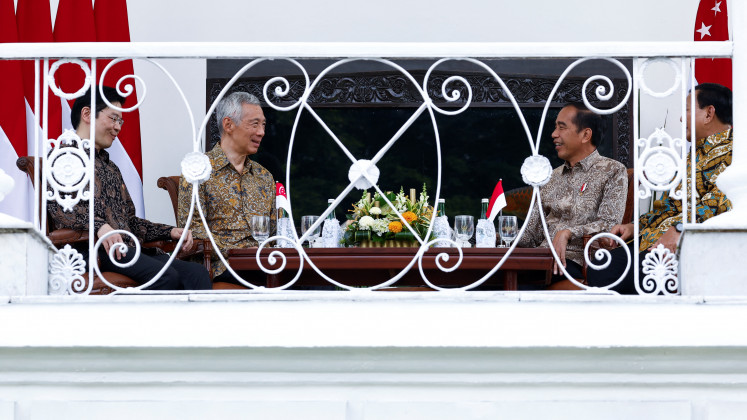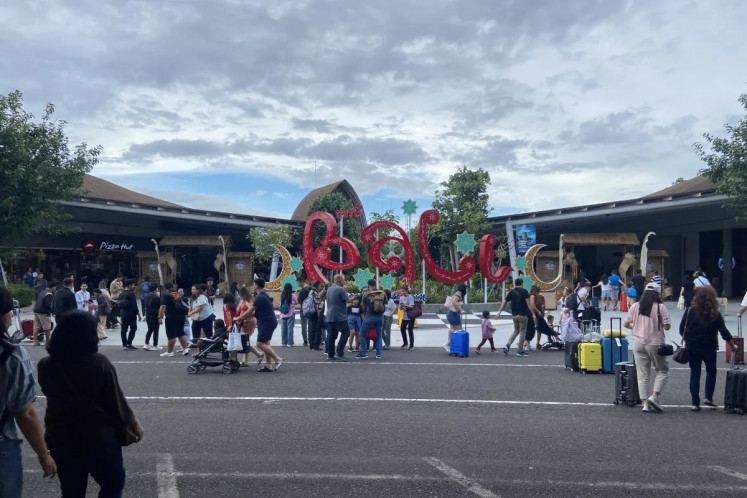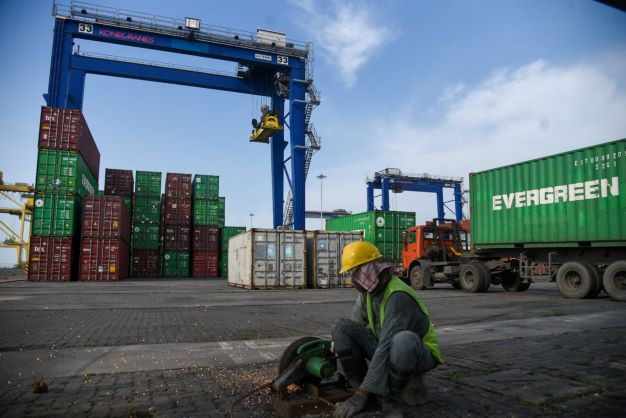Government prepares shift from cash-in-hand social aid
The government is making preparations to avoid cash-in-hand payments in the distribution of social assistance in a bid to increase efficiency and oversight in President Joko “Jokowi” Widodo’s signature welfare program
Change Size

T
he government is making preparations to avoid cash-in-hand payments in the distribution of social assistance in a bid to increase efficiency and oversight in President Joko “Jokowi” Widodo’s signature welfare program.
The non-cash scheme under the Office of the Coordinating Human Development and Culture Minister would be tested in 44 cities across the country in January 2017, where the social assistance would be transferred through four state-owned banks, Coordinating Human Development and Culture Minister Puan Maharani said on Tuesday.
Her office is in the final stage of preparing a presidential regulation on the program set to be completed before the end of the year. The regulation will form the legal basis for the government to stop using cash in benefit payments to holders of the Prosperous Family Card (KKS).
The bank transfer scheme is set to integrate all of Jokowi’s social aid programs, namely the Family Hope Program (PKH), the rice social assistance (Rastra), the Indonesian Health Card (KIS) and the Indonesian Smart Card (KIP). The beneficiaries are expected to receive all social assistance through one “combo card” that can be used as a debit card.
“We need to educate citizens about the shift from cash to the non-cash distribution of social aid. Synergy with all stakeholders is important, so that during the trial we can further monitor and make an evaluation to improve the mechanism,” Puan said after a coordinating meeting at her office.
In the trial cities, which include Medan and Padang in Sumatra, capital cities of Java, the national capital of Jakarta, Mataram in West Nusa Tenggara and Makassar in South Sulawesi, the government will also boost the role of what it calls e-Warungs. These are grocery stores that sell eligible recipients subsidized commodities, such as rice, eggs, sugar and cooking oil supplied by the State Logistics Agency (Bulog). There were 92 such stores across the country, Puan said.
The cashless social aid program is to be supported by cooperatives that will offer saving and loan facilities.
Central Bank Governor Agus Martowardojo said state-owned lenders Bank Mandiri, Bank Negara Indonesia (BNI), Bank Rakyat Indonesia (BRI) and Bank Tabungan Negara (BTN) would cooperate with 114,000 agents of the branchless banking program Laku Pandai spread throughout the country to distribute the social assistance.
There are currently 3.5 million PKH beneficiaries across the country, and the government aims to almost double that number in November.
The Social Affairs Ministry is optimistic that the new social aid delivery system will not only help the beneficiaries but also support the government’s plan to eradicate graft in public services.
“Through bank accounts it will be easier to control, and the assistance will directly reach the target. With a more transparent system like this, everything will be accounted,” the ministry’s director-general of poverty alleviation, Andi Za Dulung, said.
The program will also be in-line with President Jokowi’s vision of financial inclusion that encourages cashless transaction. Indonesia lags behind neighboring countries, including Singapore and Malaysia, with 95 percent and 80 percent use of cashless transactions.
The government aimed to reach a share of 75 percent cashless transactions by 2019, which would mark a jump from 35 percent in 2015, Andi said.
The Social Affairs Ministry has proclaimed a target that by 2019 at least 50 percent of the beneficiaries are able to easily receive non-cash social assistance.
Cash-based aid programs launched under the names of direct cash assistance (BLT) and temporary direct cash assistance (BLSM) under the administration of former president Susilo Bambang Yudhoyono had people wait in line for a long time to receive social assistence.









